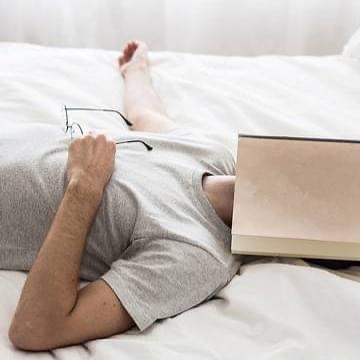Scientists now know that, if you are consistently surviving on too little sleep (that’s less than seven and a half hours of good sleep a night), you’re not going to be functioning at your best, focusing properly or thinking creatively. The cherry on top is that you are also sabotaging any attempts to take control of healthy eating and your weight.
Sleep and weight are intimately related. If you are not getting enough sleep on a regular basis, you are setting yourself up to be hungrier, eat more, weigh more, and have a harder time losing weight.
Sleep deprivation also causes hormone imbalance, and I’m not talking about PMT, but the hormones that directly affect your feelings of hunger. Ghrelin (the hunger hormone – that makes you feel more hungry) and leptin (the satiety hormone that tells you when you’ve had enough) are majorly disrupted when you are not sleeping enough.
Lack of sleep also messes with your levels of stress hormones and your body’s sensitivity to insulin, both of which contribute to weight gain.
So, after a night of bad sleep, if you feel ravenous, it’s not all in your head, but rather, in your hormones. And, it’s the carb-heavy, starchy foods that are going to be calling your name, not the lovely healthy ones.
If you’re trying to lose weight, not getting enough sleep can sabotage your efforts.
A lack of sleep is linked to poorer food choices, increased hunger and calorie intake, decreased physical activity, and ultimately, weight gain.
If your weight loss efforts are not producing results, it may be time to examine your sleep habits. Though individual needs vary, most adults need around 7–9 hours of sleep per night.
Getting some much-needed rest may make all the difference in helping you achieve your weight loss goals.










